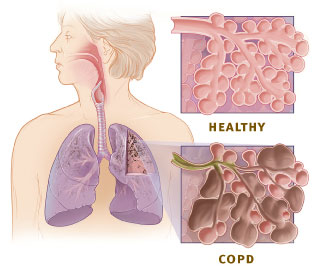Sleep plays an important role in synchronizing body and mind, maintaining the body’s circadian clock that up keeps correct rhythm.
Inadequate sleep and sleep deprivation contribute to;
A study published in The Journal of Sleep Medicine authored by Mohamed Boubekri, Ivy N. Cheung, Kathryn J. Reid, Chia-Hui Wang, Phyllis C. Zee, conclude that exposure to light, during the day, particularly in the morning, is beneficial to health via its effects on mood, alertness and metabolism.
Employees with windows in the workplace received 173 percent more white light exposure during work hours and slept an average of 46 minutes more per night than employees who did not have the natural light exposure in the workplace, the study shows.
There also was a trend for workers in offices with windows to have more physical activity than those without windows. The quality of sleep was measured by Pittsburgh Sleep Quality Index (PSQI) that differentiates “poor” from “good” sleep by measuring seven domains: subjective sleep quality, sleep latency, sleep duration,habitual sleep efficiency, sleep disturbances, use of sleep medication, and daytime dysfunction over the last month.
The client self rates each of these seven areas of sleep. Scoring of the answers is based on a 0 to 3 scale, whereby 3 reflects the negative extreme on the Likert Scale. A global sum of “5”or greater indicates a “poor” sleeper.
Good design of house and office with adequate number of windows not only saves power, but also allows the users to enjoy a healthy life.
Inadequate sleep and sleep deprivation contribute to;
- Heart disease,
- Diabetes,
- Depression,
- Accidents,
- Impaired cognition,
- Irritability and
- A poor quality of life.
A study published in The Journal of Sleep Medicine authored by Mohamed Boubekri, Ivy N. Cheung, Kathryn J. Reid, Chia-Hui Wang, Phyllis C. Zee, conclude that exposure to light, during the day, particularly in the morning, is beneficial to health via its effects on mood, alertness and metabolism.
Employees with windows in the workplace received 173 percent more white light exposure during work hours and slept an average of 46 minutes more per night than employees who did not have the natural light exposure in the workplace, the study shows.
There also was a trend for workers in offices with windows to have more physical activity than those without windows. The quality of sleep was measured by Pittsburgh Sleep Quality Index (PSQI) that differentiates “poor” from “good” sleep by measuring seven domains: subjective sleep quality, sleep latency, sleep duration,habitual sleep efficiency, sleep disturbances, use of sleep medication, and daytime dysfunction over the last month.
The client self rates each of these seven areas of sleep. Scoring of the answers is based on a 0 to 3 scale, whereby 3 reflects the negative extreme on the Likert Scale. A global sum of “5”or greater indicates a “poor” sleeper.
Good design of house and office with adequate number of windows not only saves power, but also allows the users to enjoy a healthy life.
...
Click here to Subscribe news feed from "Clinicianonnet; so that you do not miss out anything that can be valuable to you !!
...







